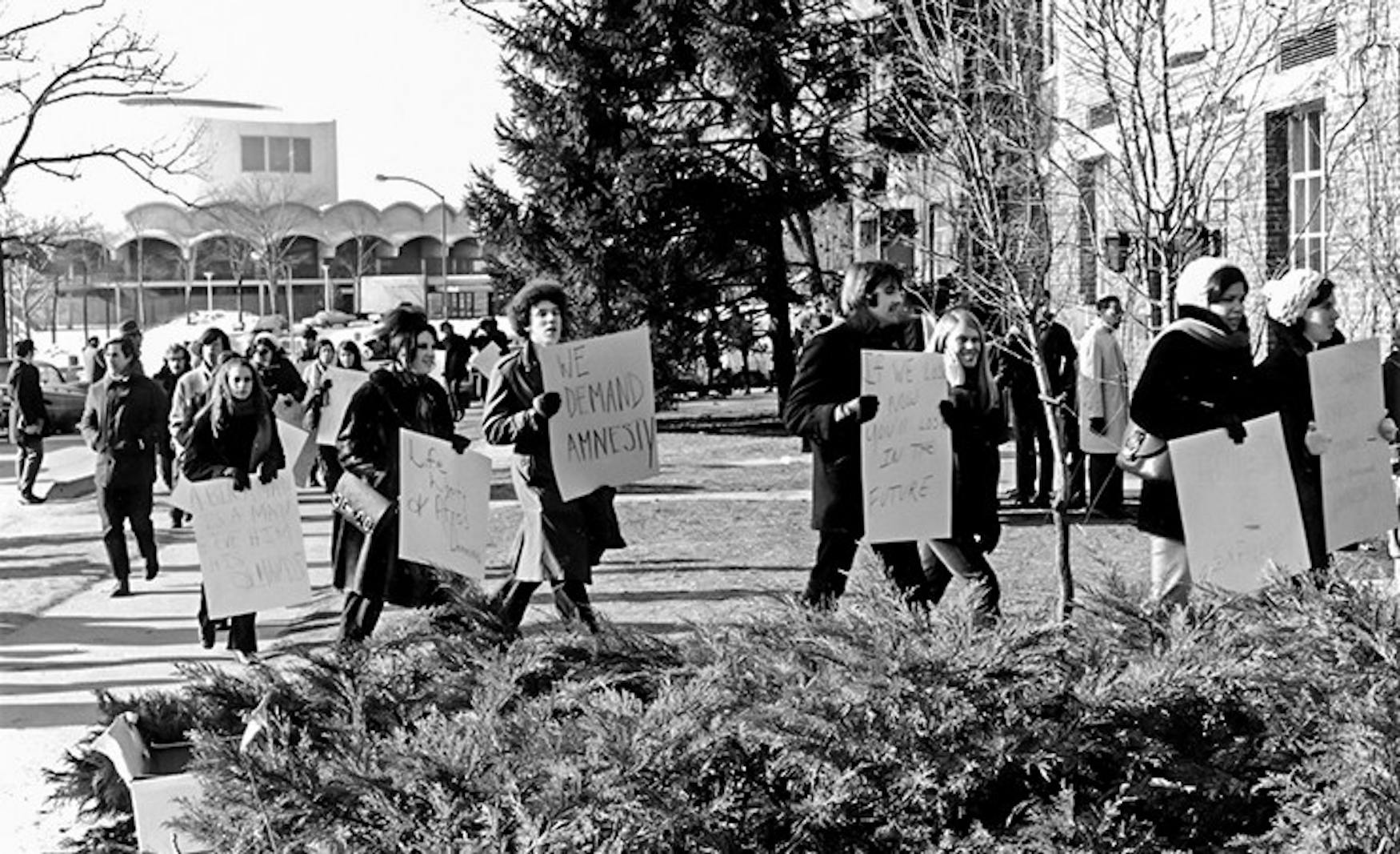All talk, no action
On Feb. 6, the students of the course “Black Brandeis, Black History” (AAAS) led a teach-in about Angela Davis ’65 at the Mandel Center of Humanities Forum. The teach-in — which centered the life and activist work of one of Brandeis’ most famed alumni — prompted student and audience discussion about the University’s public treatment of Davis. The overwhelming sentiment was that Davis’ work has historically gone unrecognized by the University and is only acknowledged in a performative context. One student commented on Davis not being invited to speak at the 75th anniversary weekend. Another criticized the University's tendency to pick and choose which causes to align itself with depending on what is most “in vogue” and uncontroversial at the time.
Pauli Murray, a hero of the Civil Rights Movement and the Women’s Rights Movement, is another Black feminist figure in Brandeis’ history. Her work has been neglected in both her life and in her legacy, as she was initially denied tenure at Brandeis, until she got support from a co-founder of the American Studies department Lawrence Fuchs and to this day goes largely unmentioned. This board condemns the use of Brandeis community members such as Angela Davis and Pauli Murray as symbols of its social and political virtue, rather than honoring these individuals in meaningful ways and attributing their accomplishments to their efforts.
As many of us understand, Brandeis has cultivated a reputation over the years for its students’ outspokenness on social justice issues, having made national news multiple times since 2014 for its divisive campus climate. Since then, there have been changes in the administration’s leadership followed by stricter limitations placed on students’ speech and activist endeavors. The University also frequently reminds community members and prospective students of the Occupation of Ford Hall in 1969: an 11-day sit-in led by Black students and students of color, calling for racial equality at the University. They presented administration with 10 demands, and the 2015 Ford Hall sit-in lasted for 13 days and included 13 demands. However, what Brandeis administration fails to recognize is that said students were the ones responsible for the activism, and that the students were protesting against the University. It is inaccurate for the University to claim that they support and encourage student dissent, given its impulse to police rather than collaborate and work with students’ social justice initiatives. It is especially inaccurate to assume credit for student and faculty activist work by attributing it to the institution’s moral infrastructure.
We firmly believe that the University ought to demonstrate more follow-through with its commitment to its founding principle of social justice. It has established itself as one that supports diversity, equity and inclusion, and much of the draw for prospective students lies within this assumption. We condemn the often performative nature of Brandeis’ alignment with these principles, which we have seen with its framing of student and faculty work towards social justice as mere pins on its lapel.
Black History Month should mean more to this University than an obligatory email blast reminder. We encourage more active engagement from the administration with the values it purports to have, which means acting on the promises it makes to students in a timely fashion, rather than setting out to make changes and allowing those provisions to fade out as students graduate. More than this, it means adopting real initiatives which will produce tangible results that honor the true meaning of “social justice.”




Please note All comments are eligible for publication in The Justice.